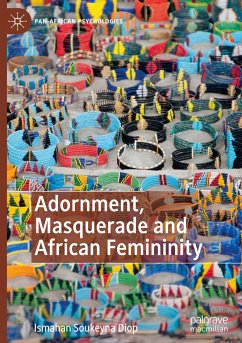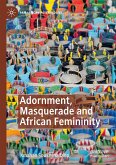This book draws on a unique theoretical framework informed by clinical case studies, Fanonian and Lacanian psychoanalysis, and decolonial feminism, to examine the concept of adornment in African cultures.
The book discusses the construction of aesthetic feminine ideals and the evolution of such ideals within the history of colonization, decolonization and globalization. Through the analysis of adornments including accessories, hairstyle, clothes and fabric, the author demonstrates how they can reflect social status, and also addresses its symbolic function in rituals. At the level of the individual, it draws on clinical case studies to examine the Lacanian theory of adornment and masquerade of femininity, and the extent to which this echoes ambivalent attitudes towards women in society at large. In doing so it provides a nuanced analysis which reveals how body adornment can be a paradoxical demonstration of both strength and weakness.
Building on the author's previous work in this area, this book offers an important contribution to current debates in psychoanalysis, cultural studies, critical race theory and decolonial feminism.
The book discusses the construction of aesthetic feminine ideals and the evolution of such ideals within the history of colonization, decolonization and globalization. Through the analysis of adornments including accessories, hairstyle, clothes and fabric, the author demonstrates how they can reflect social status, and also addresses its symbolic function in rituals. At the level of the individual, it draws on clinical case studies to examine the Lacanian theory of adornment and masquerade of femininity, and the extent to which this echoes ambivalent attitudes towards women in society at large. In doing so it provides a nuanced analysis which reveals how body adornment can be a paradoxical demonstration of both strength and weakness.
Building on the author's previous work in this area, this book offers an important contribution to current debates in psychoanalysis, cultural studies, critical race theory and decolonial feminism.








